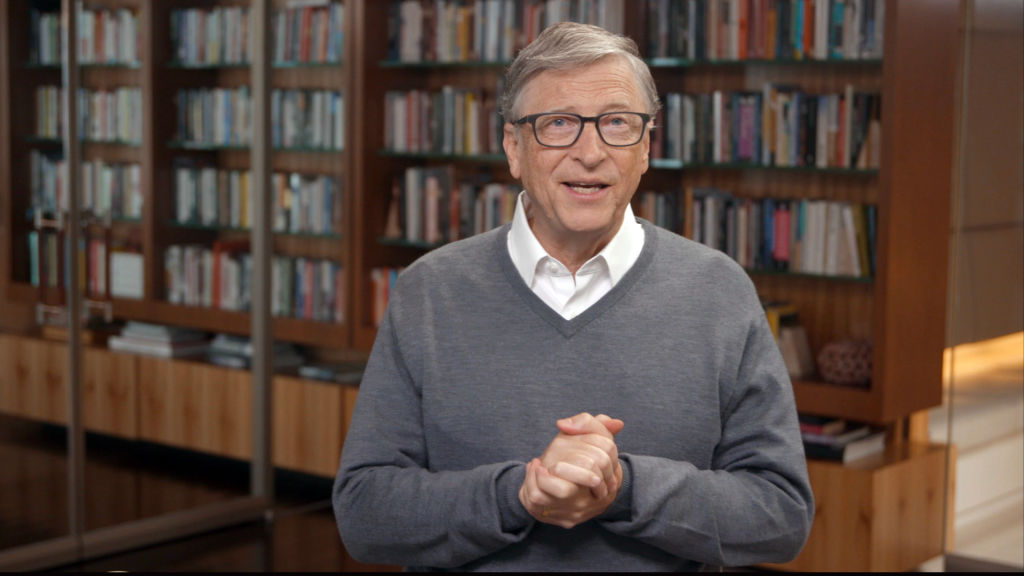AS THE world is slowly crawling back from the abyss of a global pandemic, Bill Gates has issued a grim warning that addressing climate change will be far more difficult than solving the Covid-19 health crisis.
In an interview where he appeared on a large screen in the Natural History Museum in London, the billionaire philanthropist spoke of the most pressing issue facing humanity – climate change.
Solving this problem would, by his estimation, be "the most amazing thing humanity has ever done”.
The Microsoft founder gave the audience an idea of the magnitude of the task when he said that resolving the pandemic was "very, very easy” in comparison with the climate crisis.
Mr Gates has released a new book called “How to avoid a Climate Disaster”, where he details his arguments about how to tackle global warming.
He is adamant about the scale of the challenge and that it shouldn’t be underestimated: "We've never made a transition like we're talking about doing in the next 30 years," he said.
"There is no precedent for this."
One of the starkest statistics in the book is that in a typical year, the world currently emits fifty-one billion tonnes of greenhouse gases – yet by 2050, we need to arrive at net zero.
To achieve this, carbon emissions will have to be cut to the point where the atmosphere can absorb them entirely.
 Bill Gates (Photo by Getty Images/Getty Images for All In WA)
Bill Gates (Photo by Getty Images/Getty Images for All In WA)Another approach would be to increase the amount of CO2 the atmosphere can absorb – by planting trees that convert it to oxygen, for example.
Mr Gates, who admits to being a considerable carbon emitter, argues that simply asking people to “use less” won’t cut the mustard.
Instead he places his faith in government led economic incentives to pave the way for innovations in green technology – including subsidies to make green alternatives more competitive compared to fossil fuels, which are often cheaper to manufacture.
He does not discount the importance of lifestyle changes, though: “If you buy an electric car, a hamburger made of a meat substitute, an electric heat pump for your home you are helping increase the production of these products and therefore helping drive prices down”, he told BBC News.
Mr Gates has also tries to lead by example – by billionaire standards, at least – as his jets are now powered by biofuels sourced from plant products that cost “three times as much” as fossil fuel alternatives.
He does not support some of the more extreme proposals, such as banning flying altogether, though: “That type of brute force technique won't get us there”, he told the BBC.
It is unsurprising that the tech pioneer has placed his bets on technology-based way out of the climate conundrum – he believes that instead of avoiding planes, the world should engineer planes to fly using green hydrogen or electricity.
He backs the idea of a green recovery plan from Covid-19 and thinks that postpandemic stimulus packages should be structured with climate change goals in mind.
What gives him hope in the face of a problem of such staggering scale, is, he says, the “moral conviction” that young people have on the issue.
Solving climate change would be akin to stopping the Nazis in World War II, Mr Gates said in an interview with Bloomberg.

